Bethesda Green has worked with volunteers and Environmental Leaders to plant and maintain three pollinator gardens in the area. These pollinator gardens provide nectar and other resources that support crucial native pollinators such as butterflies, honeybees, bumblebees, and humming birds. One of the gardens has also been designed specially to absorb carbon from the atmosphere. All the gardens contain a variety of native species. Scroll down to learn more about each garden and find resources for planting your own pollinator garden!
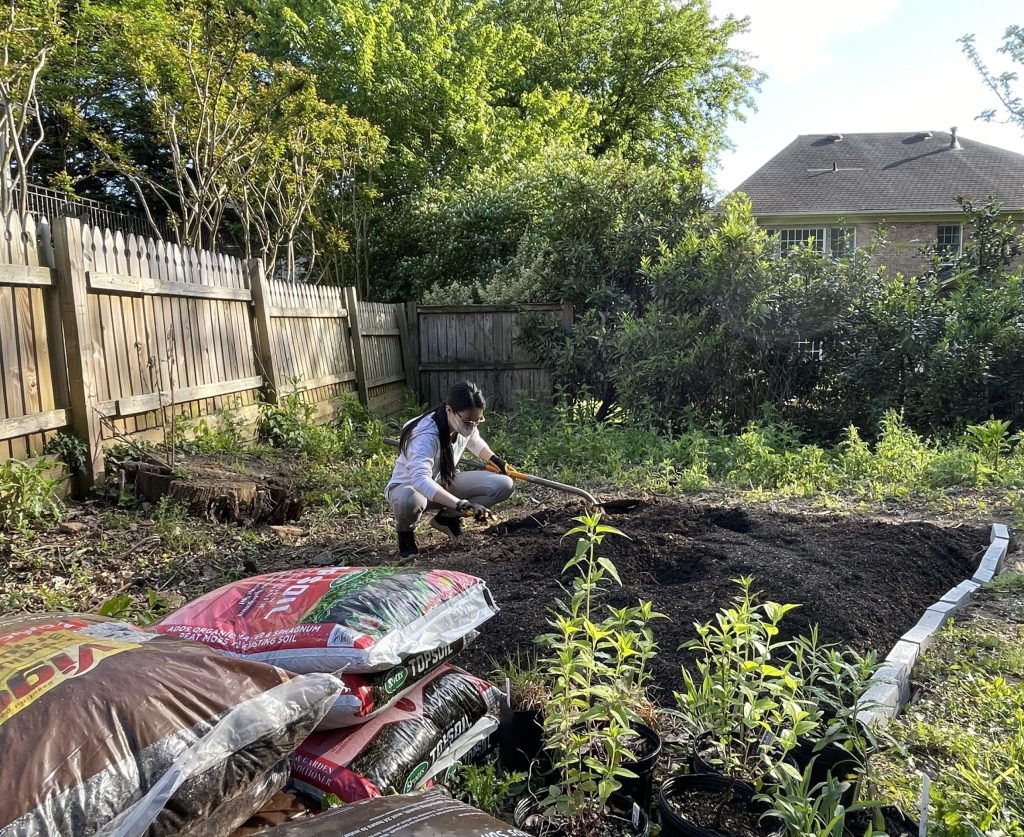 The Bannockburn Pollinator Garden
The Bannockburn Pollinator Garden
Bethesda Green Environmental Leader Emily Wu started the Bannockburn Pollinator Garden to provide a local habitat for native pollinators. The garden features 14 plants and serves as a resting ground for a variety of insects. Bethesda Green now manages the garden with the help of our Be Green Living Assistant, Oran Lichtman. Bethesda Green’s Environmental Leaders also use the garden to learn about biodiversity. Learn more about the Bannockburn Pollinator Garden.
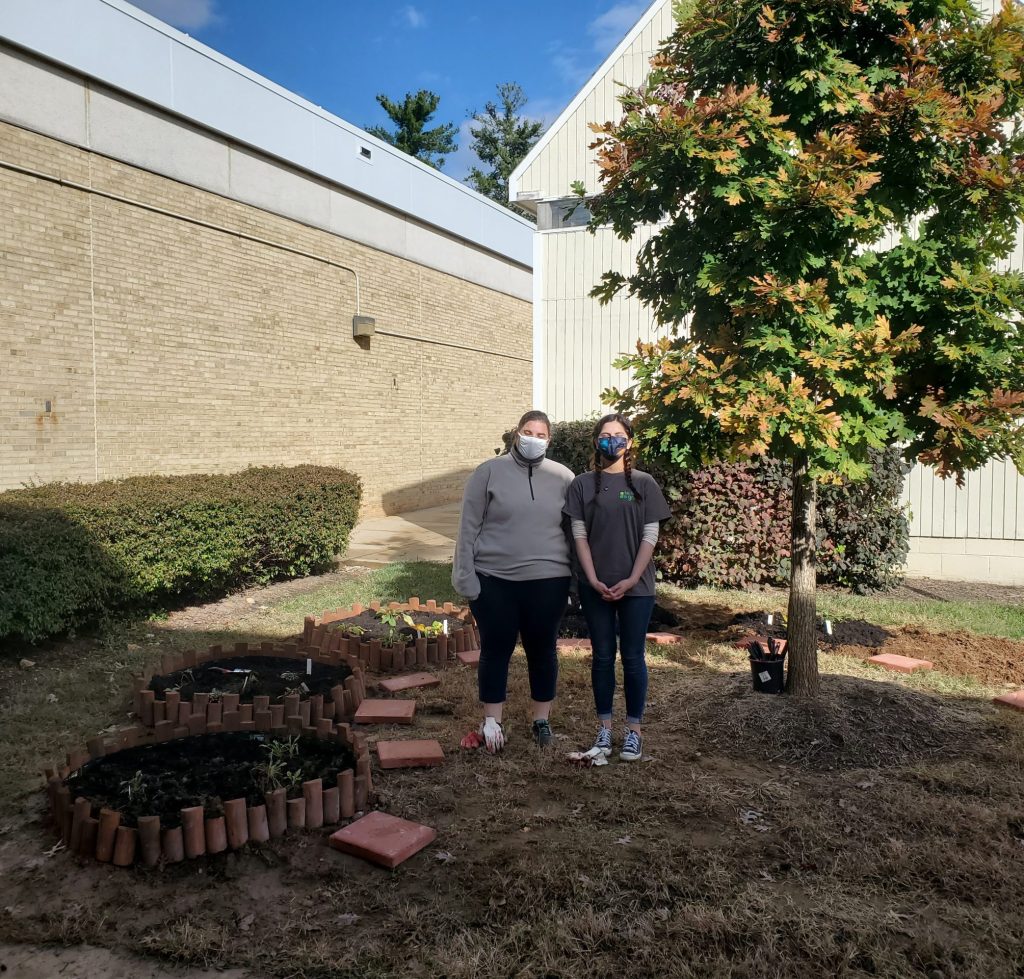 Montgomery College Rockville Campus Pollinator Garden
Montgomery College Rockville Campus Pollinator Garden
Environmental Leader Nida Khan planted a pollinator garden in 2021 on the Montgomery College Rockville campus. Head behind the PE building to view it in person!
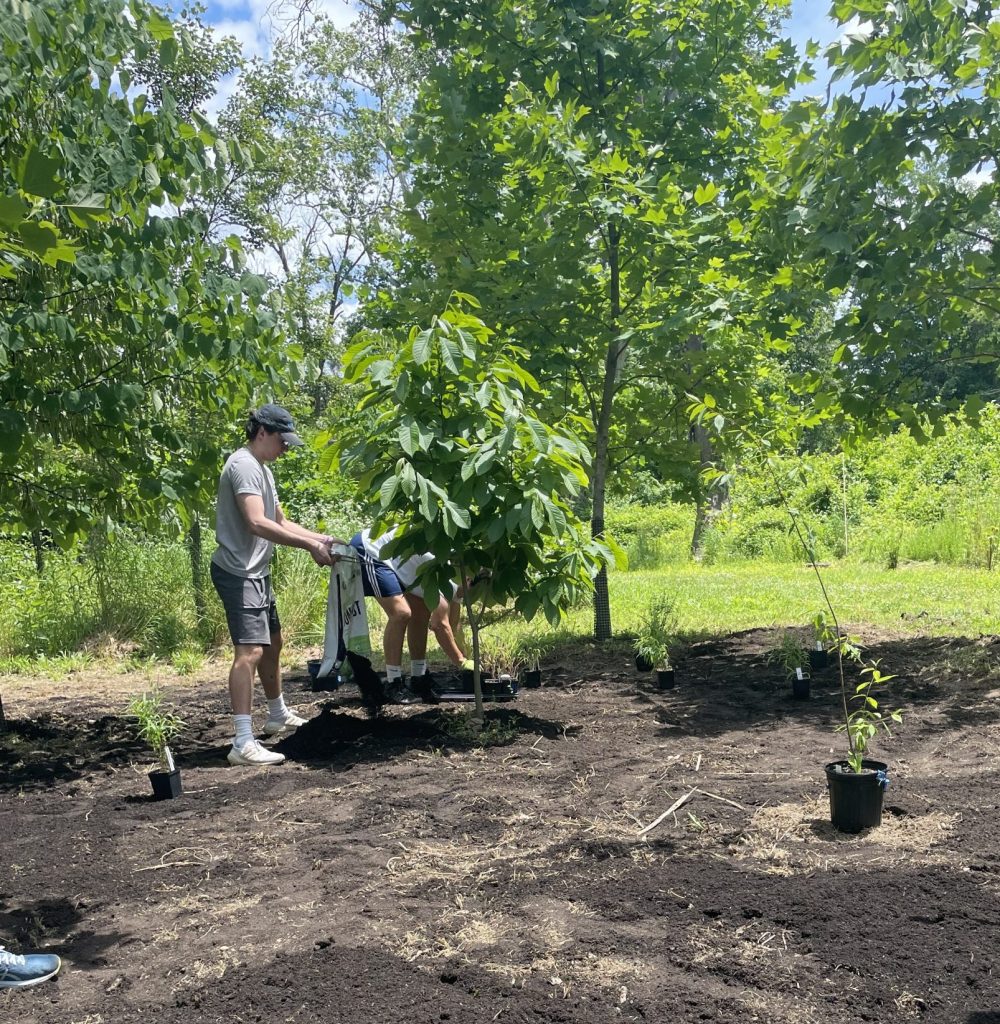 Carbon Offset Garden
Carbon Offset Garden
Former Bethesda Green Environmental Leaders Alex Spiegel and Andrew Lebowitz created a carbon garden in order to demonstrate how carbon sequestration, if done on a large scale, could help fight climate change. Learn more about carbon sequestration and the carbon offset garden.


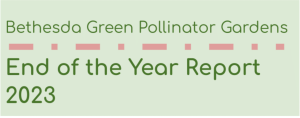
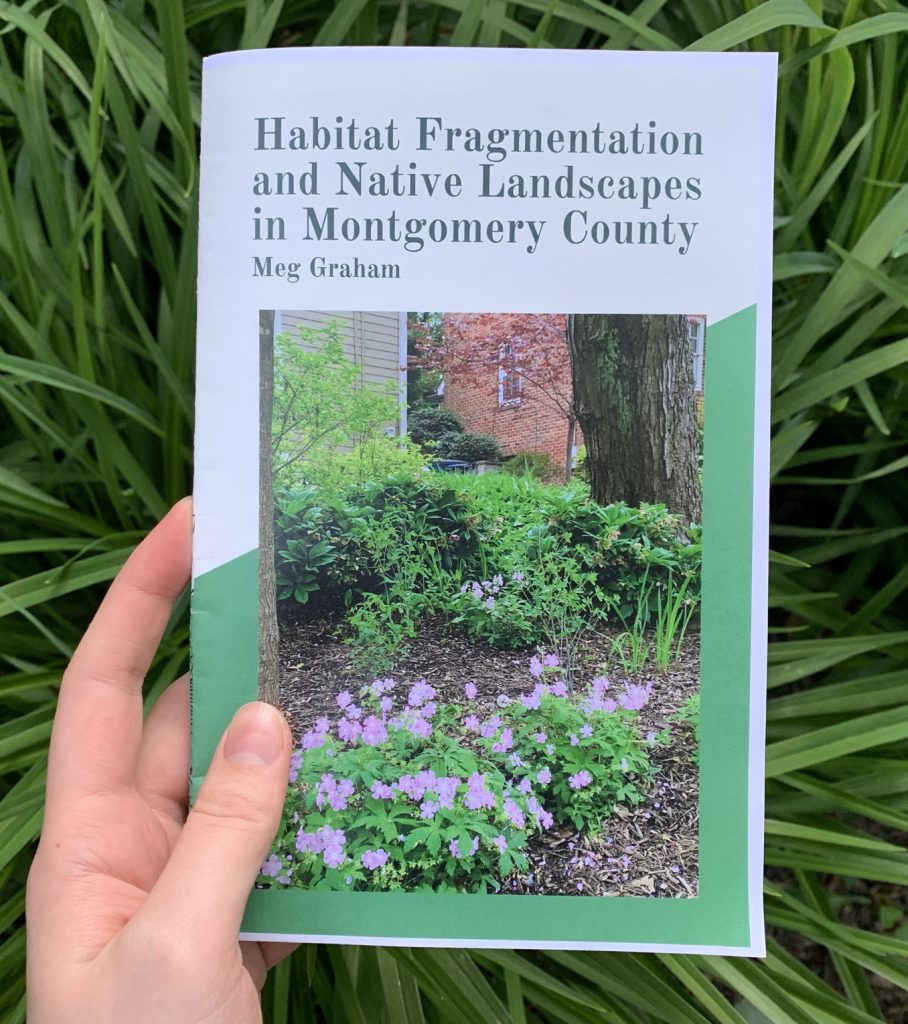 Learn more about why pollinator gardens are important and how you can plant your own garden in this booklet created by Environmental Leader Meg Graham. Meg created this resource to inspire people to make environmentally friendly choices in their garden. The booklet explains the problem of habitat fragmentation and how you can help by including native plant species in your garden. It includes an example of a pollinator garden landscape design and highlights a variety of native plants that are beneficial to the environment.
Learn more about why pollinator gardens are important and how you can plant your own garden in this booklet created by Environmental Leader Meg Graham. Meg created this resource to inspire people to make environmentally friendly choices in their garden. The booklet explains the problem of habitat fragmentation and how you can help by including native plant species in your garden. It includes an example of a pollinator garden landscape design and highlights a variety of native plants that are beneficial to the environment.